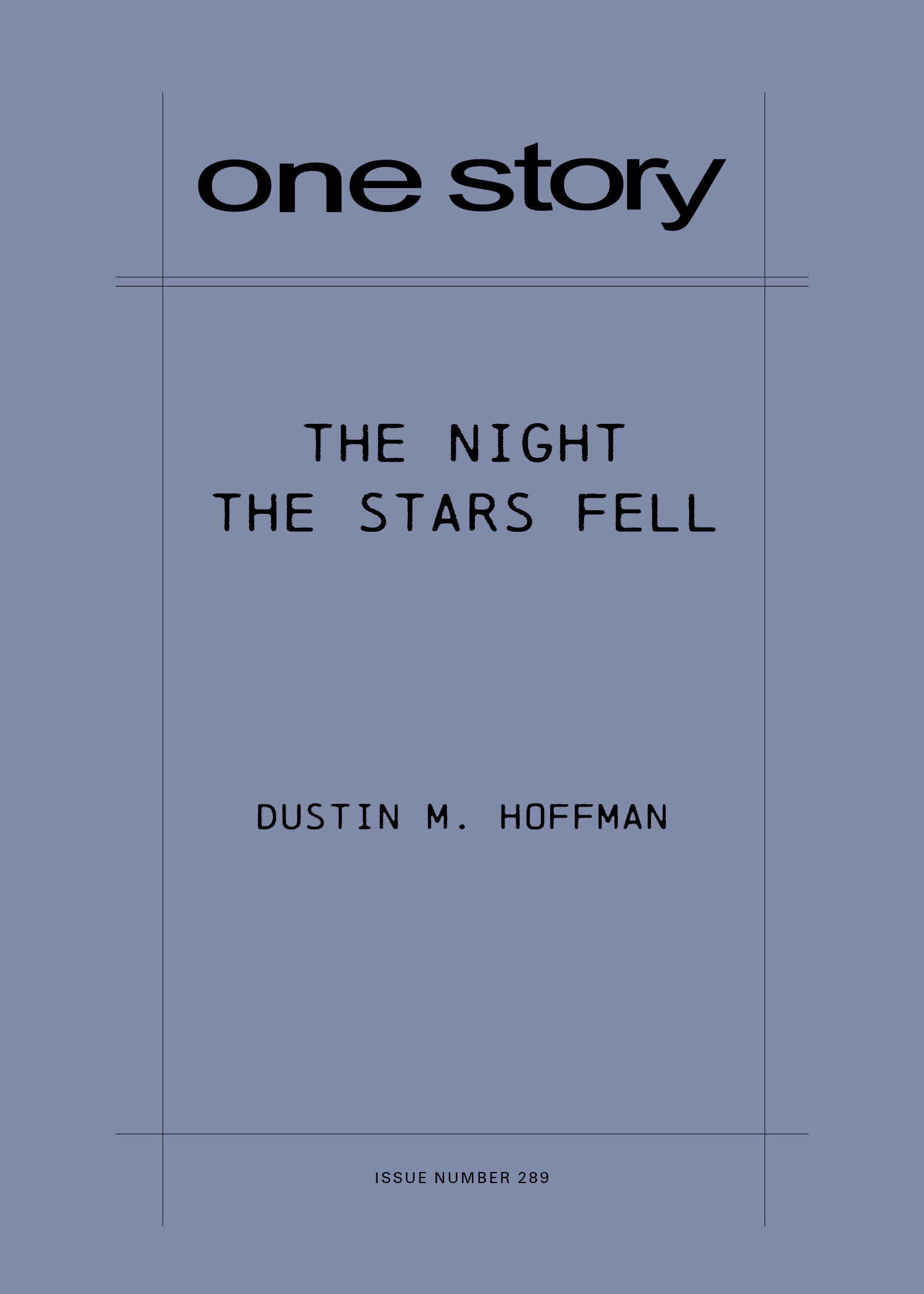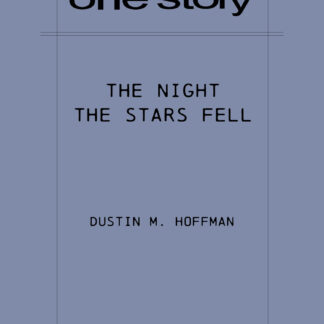
The Night the Stars Fell
$2.50
45 in stock
Excerpt
The night the stars fell, Jack was inside, watching a Discovery Channel special about walruses. While the rest of the world witnessed an endless black tar seizing the night sky, Jack was chuckling to himself about the bulging torsos rolly-polling onto beaches. Those torsos served as a fine distraction from what he’d been working on while Catherine was at her job. He’d been studying up on miscarriages and had learned that they were quite common. They happened all the time, in fact. He was ready, they were ready, to try again, and Catherine just needed convincing. He’d written a little speech he wanted to give her. He’d gone through a dozen drafts.
After eight months of unemployment and meandering sadness, Jack was going to jumpstart his life, make it matter, and—just wait and see—he was going to be so good at being a dad. Throughout his employment hiatus, he’d absorbed countless documentaries, and he was confident he could surpass the father failures of the animal kingdom: grizzlies eating their cubs, lions dawdling in the shade while their partners drudged home fresh carcass, sand gobies eating half their eggs just so they could get back to screwing.
Dustin M. Hoffman
Dustin M. Hoffman is the author of the story collection One-Hundred-Knuckled Fist, winner of the 2015 Prairie Schooner Book Prize. His second collection, No Good for Digging, and his chapbook, Secrets of the Wild, were published by Word West Press. He painted houses for ten years in Michigan and now teaches writing at Winthrop University in South Carolina. His stories have recently appeared in Faultline, Juked, DIAGRAM, Redivider, Fiddlehead, and Alaska Quarterly Review. Learn more at dustinmhoffman.com.
Patrick Ryan on “The Night the Stars Fell”
Our new issue, “The Night the Stars Fell,” is about that very thing: a night like any other, except that all of the stars have suddenly dropped out of the sky and out of sight. We don’t see it happen. We don’t know where they landed. What we do know is that Jack, eight months unemployed, has recently resolved to get his life back together. Unfortunately, he’s chosen this very night to explain to his wife, Catherine, how wonderful he and everything in their marriage is about to become. But Jack has rotten timing, and nothing seems on the verge of becoming wonderful. Quite the opposite, in fact.
I enjoy a good world-changing-disaster story as much as the next person. But in such stories, the buildup and the disaster itself usually get all the creative push, and the post-disaster portion of the story runs out of steam (it’s much more fun to watch things come apart than it is to watch people step over the broken pieces). “The Night the Stars Fell” avoids this by sidestepping both the event and its long-term impact on the lives of Jack and Catherine. We join them not long after the sky has been vacated and spend the next hour or so in their company, as they venture out of their home to assess the state of the world and, in the process, the state of their marriage.
Dustin M. Hoffman’s “The Night the Stars Fell” is a disturbing, delightful journey through a chaotic evening in the life of a troubled marriage. One Story is happy to present it to you.
Q&A by Patrick Ryan
- PR: Where did you get the idea for this story?
- DH: I rarely use my dreams for art, but that’s where this idea came from. I used to dream of the stars falling when I was a kid, and I still get a bit freaked out when I’m staring up at a starry night. I mean, those stars are just dangling there, just waiting to drop. All that beauty seems so precarious. That’s just the initial premise, of course, and it only took me thirty years to figure out how to write it.
- PR: How long did it take you to finish a draft you were happy enough to send out into the world?
- DH: I tend to barrel through initial drafts, hoping the momentum will trick my rational sensibilities that might otherwise convince me to quit. So, maybe a few weeks drafting. The revision is where all the action happens for me, always, and I struggled through probably a dozen revisions and received some great feedback from some of my best readers, the brilliant poet Brad Aaron Modlin and my agent, Heather Carr. I need to get at least one trusted reader’s eyes on any story before I send it out. This one was probably quicker than most. It took about six months from the first drafting before I was ready to send it out.
- PR: What was the most surprising thing you found in writing this story?
- DH: My favorite part about writing is when I can trust the story enough to steer me into scenes I hadn’t expected. The bonfire grocery store scene was a delightful surprise, a fun section to write. What surprised me the most, though, was how the miscarriage ended up developing. I’d intended this story to be funny. I wanted humor and absurdity amidst this terror, and I think it still is funny. But then the story demanded more from the hurt and loss these characters shared. George Saunders says to treat revision like an act of love, always asking the story what more it has to show you, what more it wants you to know about it. This story needed that kind of compassion from me.
- PR: One of the things I admire here is that the story hangs on an enormous fantastical event, yet you don’t show that event. Were you tempted to, in early drafts?
- DH: The dreams I had when I was a kid were so vivid. The image is still branded in my mind. And sure, I wanted to show what was in my head, but it only took a few sentences of attempting for me to learn that just wasn’t going to translate. What happens after a horrific event is always more interesting to a story anyway. That and what leads up to it. So, this story found itself in writing around the pyrotechnics. Turning the spectacle into a void provides more tension here.
- PR: Speaking of that—the story doesn’t show us the next day, and some of your characters wonder if the sun is going to come up. This is kind of a silly question, but do you know if there’s a sunrise the next day? You don’t have to explain or even answer anything beyond yes or no. I just think it’s interesting what a writer knows about the world of the story that doesn’t make it onto the page.
- DH: No. I never did, and I still don’t know if the sun returns tomorrow.
- PR: When it comes to your “idea box” for stories (you’ve published a lot of them), do you find you’re more consistently drawn to ideas that aren’t at all autobiographical? Or do you like to start with autobiography and twist fiction out of it?
- DH: I almost never write autobiographically. I’m much more interested in everyone else’s life, and that’s probably a big part of why I write, to sate my curiosity, to understand the people around me, to see how far my empathy stretches. And it’s exciting and terrifying to see how far that rubber band stretches—what a lovely gift for a writer to discover one’s capacity for empathy through this medium of ours! That said, every character is a collage of real people who fascinate me, some I know too well and some I’ve only glanced at through the windshield.
- PR: What are you working on now?
- DH: I just finished my first novel, with much help from the best agent in the world, Heather Carr. But short stories are still my favorite things to write. I’m back at that, finishing up a borrowed-form fictional résumé for Rosie the Riveter that’s requiring heaps of research. After the all-consuming focus of a novel and a semester of teaching, it’s deeply pleasing to return to something short and experimental. Borrowed-form fiction is a blast, and I can’t stop writing about working people and their jobs.
- PR: What’s the best piece of writing advice you’ve ever received?
- DH: Wendell Mayo—my mentor and one of the very finest short-story writers who ever lived—always encouraged us to lean into our weird. What better advice than to pursue that part of the art that we’re probably most self-conscious about but that most distinguishes the voice?
